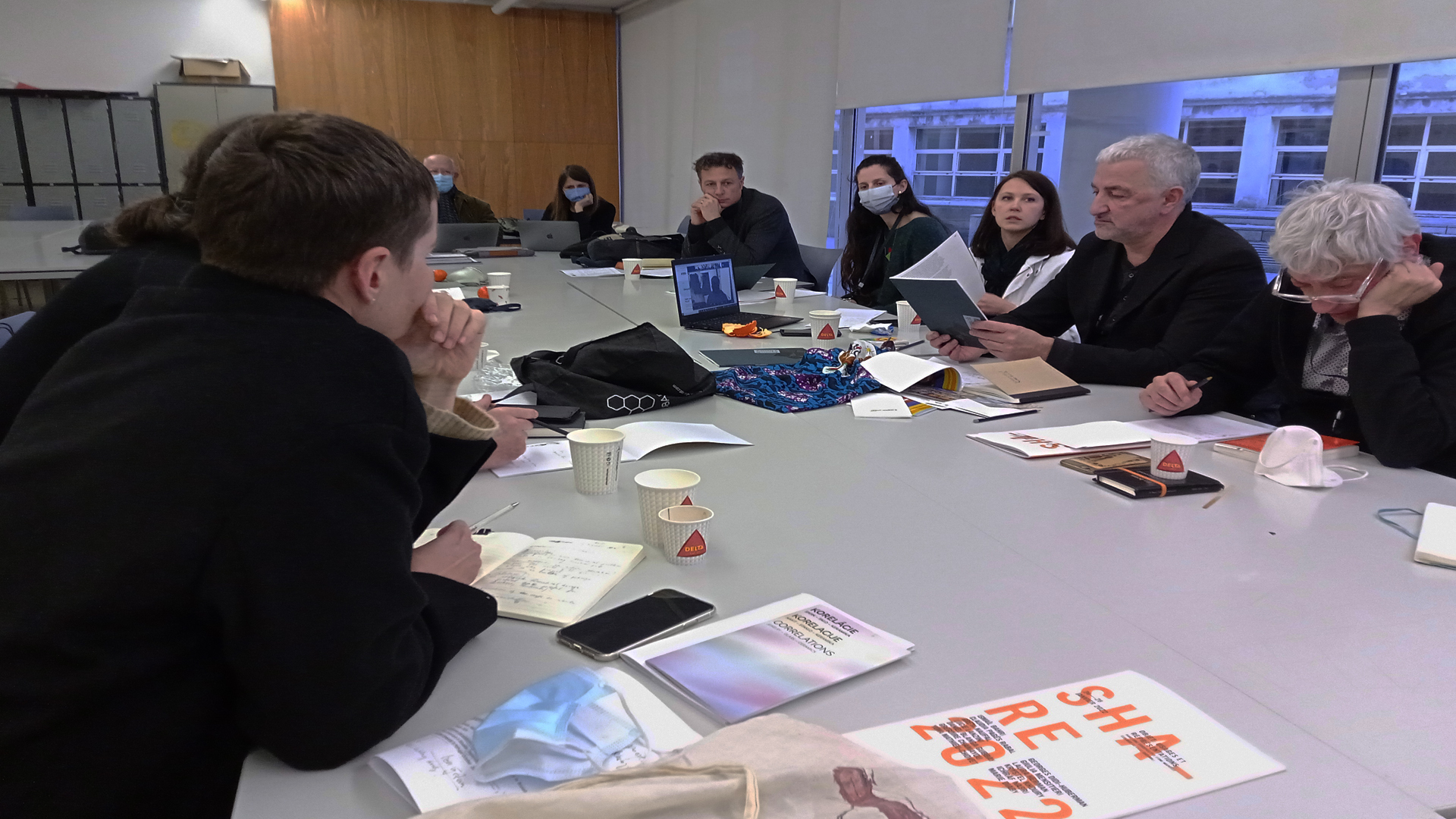Arts and Crafts
Arts and Crafts Aujourd’hui
Research project | Erasmus+
Artistic Production, Processes and Technological Studies- Referência
- 2021-1-FR01-KA220-HED-000032240
- Financiamento
- € 449.967,29
- Financiamento i2ADS
- € 70.592,00
- Período
- 11.02.2021 — 11.02.2024

The Arts & Crafts Aujourd’hui Project answers the need for professionalisation of young artists and designers, an issue that is at the heart of the concerns of European Higher Education Institutions (HEIs) of art and design. Although the creative sector generates around 30 million jobs worldwide and employs more people aged 15 to 29 than any other sector, visual arts graduates face difficulties in professional integration. Furthermore, artists and designers express an interest in re-evaluating local know-how and establishing a dialogue with various agents, whether from a technical, professional or cultural point of view. This is accompanied by an increased interest in production processes, in the materiality of the works/creations/works, related to the specific knowledge of handwork. These orientations may be linked to the search for alternative ecologically responsible modes of production in a post-industrial era and are associated with a desire to rethink the relationship with the object in the era of the Anthropocene. The concerns fully echo the Arts and Crafts movement, an English movement from the end of the 19th century that is characterised by the will to fuse art with craftmanship and may be considered a source of design. A critical attitude towards the concrete utopias connected to ecology, an assumed relationship with the technique and craftmanship, seeking the undefinition of borders between art, decorative art and design are issues that today find a particular echo in art and design.
The approaches propose solutions to transform uses, lifestyles and representations in relation to ecological emergence. Although the artistic HEIs have already become aware of those bifurcations, they still need to translate them into teaching/training programmes that will prepare the students for these new orientations. Therefore, through this thematic of Arts and Crafts inserted in the contemporary context, our project intends to propose new pedagogical methods to train artists and designers ready to enter the work market, environmentally engaged, open to the world and valuing local cultures. That will be possible through new pedagogical tools that allow the acquisition of competences in various knowledges, integrating an ecological approach and a capacity of collaboration with the actors of the professional world. The diversity and notoriety of international partners allows us to build an innovative educational project that meets these needs. The project is led by the Laboratoire d’Experimentations des Modernités de Esadse with its international partners: Royal Academy of Fine Arts of Brussels, ArBA, Belgium, Academy of Art and Design Bratislava, VSVU, Slovakia, Faculty of Fine Arts of the University of Porto, FBAU.Porto, Portugal, School of Visual Arts and Media of the University of Quebec in Montreal, UQAM, Canada. Furthermore, the project integrates many associated partners: craftspeople, production and dissemination spaces and the National Institute of Fine Arts of Tetouan.
The project aims to develop new methodologies in artistic HEIs with a focus on materiality, procedures, gestures as a form of experimentation and research, with particular attention to the eco-design themes. These methodologies will integrate the development and use of digital tools in the transmission of know-how to propose an appropriate balance between digital and physical contacts between stakeholders. Digital technology is also part of a collaborative approach as a lever for exchange between various stakeholders and to accompany training in cooperation between artists, designers and craftspeople. The methodological objectives aim to: Explore the particular role of the artist as an actor of change, who places her or himself at the centre of the social issues, decompartmentalising and democratising art and design; Seek new modes of production, responding to ecological challenges (waste management, waste minimisation, resource management, reorganising the way we produce); Encourage innovation and the transformation of perceptions and uses through collaboration between craftspeople, designers and artists. The project responds thus to the two priorities of the Erasmus+ Programme. Its results aim to attend to society’s challenges, supporting the development of innovative programmes that focus on the art and design student’s needs, training real actors of the ecological transition.
- Institutions
Laboratoire d'Experimentations des Modernités de Esadse (Coordenação)
Royal Academy of Fine Arts de Bruxelas (ArBA), Bélgica
Academy of Art and Design Bratislava (VSVU), Eslováquia
Faculdade de Belas Artes da Universidade do Porto (FBAUP), Portugal
Escola de Artes Visuais e Media da Universidade de Quebec (UQAM), Canadá
Coordinator i2ADS
Domingos Loureiro
Team i2ADS
Graciela Machado, Rute Rosas, Susana Piteira, Teresa Almeida